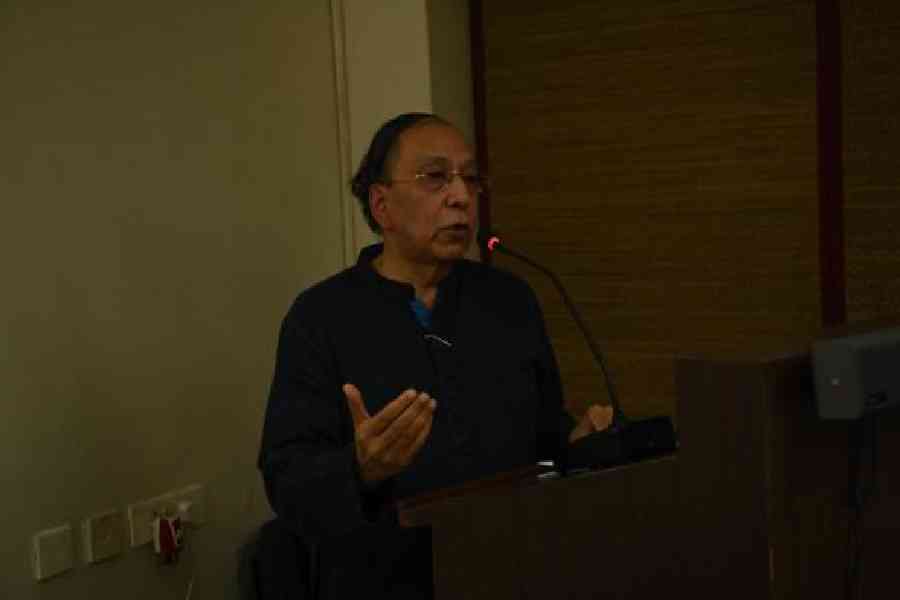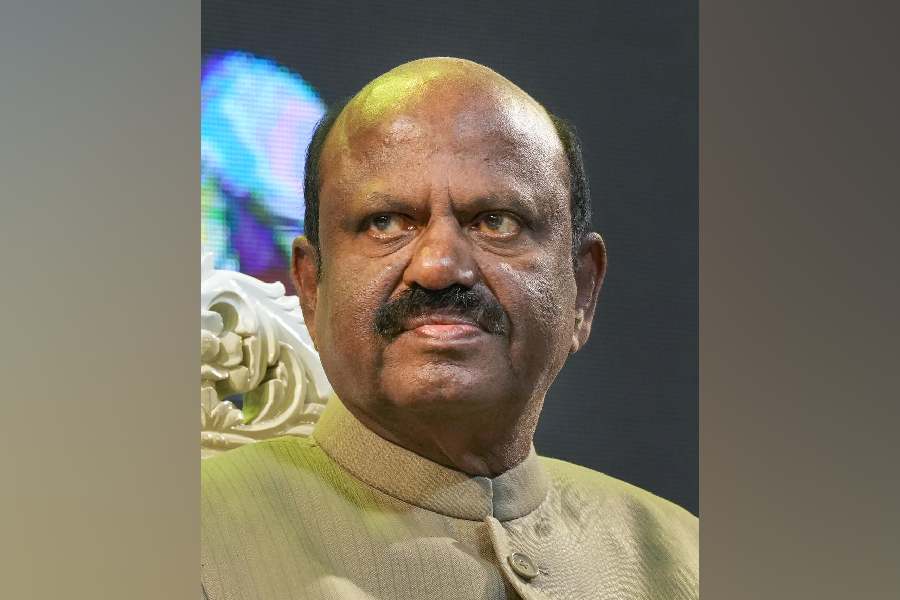The addition of one word to the Preamble of the Constitution will be wiser than subtracting two, historian Sugata Bose said on the eve of Independence Day.
The words “secular” and “socialist” have long been anathema to the Hindutva ecosystem. On June 26 this year, addressing an event on the Emergency, RSS general secretary Dattatreya Hosabale called for a review of the words. These two words had been inserted as part of the 42nd Amendment railroaded through Parliament during the Emergency.
“The erasure of ‘secular’ would be a symbolic victory for the proponents of a Hindu republic and consigning ‘socialist’ to the dustbin of history would be appropriate in an era that brazenly revels in increasing socio-economic inequality,” Bose, Gardiner Professor of History at Harvard University and the grand-nephew of Netaji Subhas Chandra Bose, said in Calcutta.
“If symbolism in the Preamble matters, it may be much wiser to add a word rather than subtract two.... The words of the Preamble to the Indian Constitution are indeed beautiful and inspirational. The addition of the word ‘federal’ would further embellish it. As India awaits a fresh census and a delimitation of parliamentary constituencies that threatens to undermine the political weight of the southern states vis-à-vis the Hindi-speaking north, the question of federalism must be addressed, not evaded. A strong and genuine Indian unity can only be of the federal type,” said Bose.
He was speaking on “Partition as Failure of Federation — Bengal in Comparative, Historical Perspective”, the third edition of the annual lecture series organised by the Kolkata Partition Museum Trust.
Some of the finest political thinkers in India, who were part of the team that was tasked with drafting the Constitution, had championed the spirit of federalism, Bose said in his hour-long address.
“The Congress high command, ignoring Mahatma Gandhi, had insisted on Partition to inherit the unitary centre of the British Raj. The spectre of Partition violence was invoked to further bolster centralised State authority and entrench emergency powers in the Constitution. Partition had depleted the ranks of federalists in the Indian Constituent Assembly. Only a few ethical and eloquent voices arguing for greater democracy and federalism remained,” Bose told a packed auditorium at the Jadunath Bhavan Museum and Resource Centre on Lake Terrace Road.
He quoted the likes of K.T. Shah, H.V. Kamath and Mahboob Ali Baig, all members of the Constituent Assembly. Bose cited the multiple failed attempts by Shah, aimed at strengthening the spirit of federalism in the Constitution.
“Subhash Chandra Bose preached and practised what he described as ‘cultural intimacy’ among India’s diverse communities. The aspiration was expressed not just in political thought and practice but captured in poetry and song, including the one by Rabindranath Tagore that became India’s national anthem. The subcontinent’s linguistic regions were building blocks of the Bharat that the dispenser of India’s destiny would bless; and its many religious communities would be bound together by a garland of love,” said Bose.
Such sentiments, he said, gained “lip service but not substantive recognition” in the State structure that came into being.
The champions of federalism feared that the unitary tilt of the Constitution might lead to a rise in “centralised authoritarianism”. Those fears have come true.
“In addition to the alienation in Kashmir and the Northeast, the recrudescence of Tamil, Kannada, Marathi and not to mention the Bengali ‘pride’ is a portent of the future direction of politics. The most far-sighted political thinkers and leaders of our freedom struggle did not believe either in inheriting a colonial centralised state or in narrow provincialism, but an imaginative and generous federal union,” said Bose.
He called for an “honest intellectual reckoning”. The reckoning was what Bose called a “necessary precondition today for advancing the cause of democracy and federalism against centralised authoritarianism”.











